Treatment Solutions
Mite-E Exterminating is committed to the safety of people, pets, and the environment. For this reason we use Integrated Pest Management (IPM) solutions for all home, office, commerical, industrial, and institutional properties.
IPM is based upon sharing the responsibility for pest control between Mite-E Exterminating and the property owner, occupant, or manager. IPM procedures include: inspection, identification, prevention, customer consultation, sanitation/exclusion, pesticide (if necessary), evaluation, and monitoring.
Mite-E Exterminating professionals will thoroughly inspect, accurately identify, and fully explain the nature and extent of your pest problem. The choice of corrective measures and control options will then be based on your specific site and situation.
IPM is based upon sharing the responsibility for pest control between Mite-E Exterminating and the property owner, occupant, or manager. IPM procedures include: inspection, identification, prevention, customer consultation, sanitation/exclusion, pesticide (if necessary), evaluation, and monitoring.
Mite-E Exterminating professionals will thoroughly inspect, accurately identify, and fully explain the nature and extent of your pest problem. The choice of corrective measures and control options will then be based on your specific site and situation.
Integrated Pest Management
What is Integrated Pest Management?
Integrated pest management (IPM) is a holistic, ecological approach to pest control, designed to provide long-term management of pests utilizing knowledge of individual pests and their relationship with their environment. Combined with available pest control methods, IPM aims to prevent unacceptable levels of pest damage by the most economical means with the least possible hazard to people, property, and the environment. Since pest problems are often symptomatic of ecological imbalances, IPM attempts to plan and manage ecosystems to prevent organisms from becoming pests.
What are the differences between pesticide-based programs and IPM?
Integrated pest management (IPM) is a holistic, ecological approach to pest control, designed to provide long-term management of pests utilizing knowledge of individual pests and their relationship with their environment. Combined with available pest control methods, IPM aims to prevent unacceptable levels of pest damage by the most economical means with the least possible hazard to people, property, and the environment. Since pest problems are often symptomatic of ecological imbalances, IPM attempts to plan and manage ecosystems to prevent organisms from becoming pests.
What are the differences between pesticide-based programs and IPM?
- IPM is information intensive and requires a greater level of participation by the homeowner / building manager to achieve long-term pest control.
- IPM makes use of all available pest control methods, including non-chemical means (i.e. control of climate, food sources, and building entry points) to prevent and manage pest infestation. Conventional pesticide-based programs rely heavily on only one method of treatment for effective pest control.
- IPM reduces negative environmental impacts by minimizing pesticide use and other environmentally disruptive pest control treatments. Conventional pesticide-based programs focus on the individual pest and its control with little regard to the ecological relationship of the pest and its environment.
- IPM requires appropriate standards for pest control by promoting tolerance of non-damaging pest populations. Conventional pesticide-based programs emphasize treatment as soon as potential pests are observed or preventive chemical treatments in anticipation of potential pest problems.
- IPM emphasizes the prevention of pest problems through site modification consequently minimizing pesticide use. Conventional pesticide-based management programs only provide short-term control of pest problems because no action has been taken to prevent their recurrence.
- IPM promotes the use of methods that provide long-term pest control.



